Rupit is Catalan for rock (from the Latin, rupes) and this historical treasure is carved from the stony hill it is perched upon.
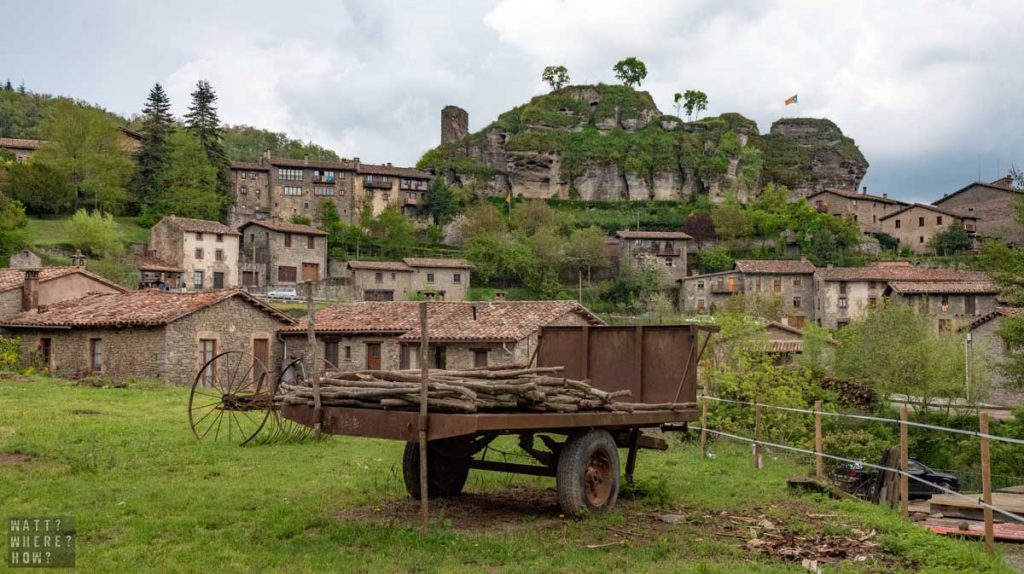
Situated 98km from Barcelona, Rupit is the perfect distance for a day trip. We experienced it with two other Catalonian towns from between 1000 and the 1600s, the most stunning being Besalu. Rupit is of the latter era, with charming renaissance architecture and buildings predominantly made from stone. It’s first mentioned in the history books is 968, with the town originating officially around the 12th century. Like the many towns we’ve passed on the way, the regional flag flutters defiantly in the breeze. It’s approaching siesta and already the town is dead quiet though maybe it just is that sleepy naturally, with only 270 residents.
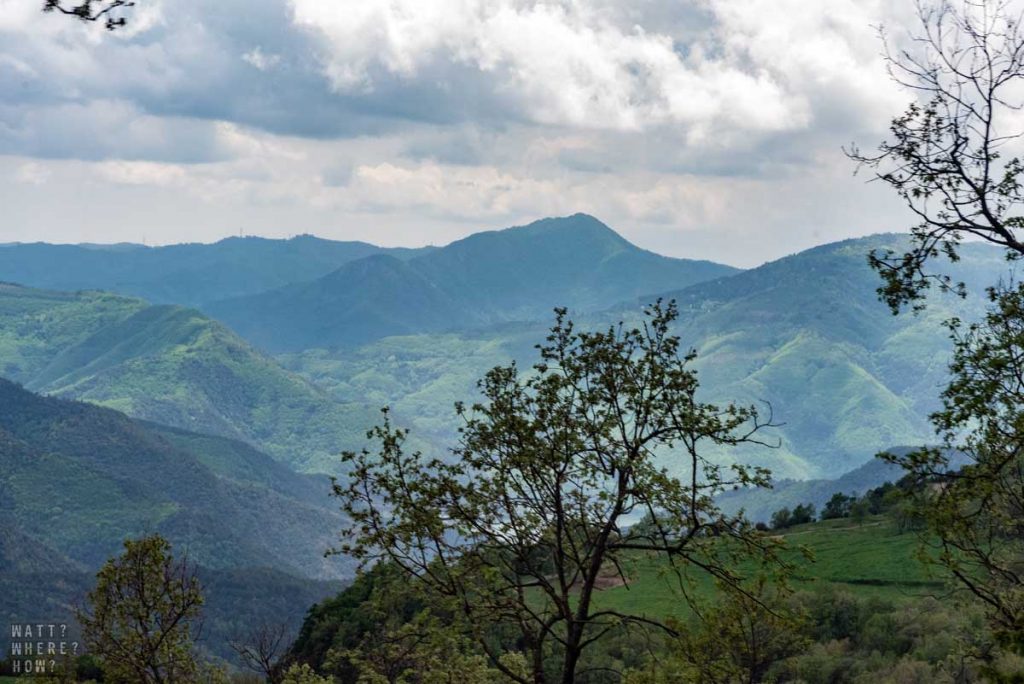
A history set in stone
Vehicle access to the township is restricted to locals only. Instead there is a large public car park at the bottom of the hill. A river churns by against a steep bank and under an old stone bridge above the car park, a lone restaurant, L’hort D’en Roca, sits atop a rocky outcrop, like a guard house protecting the village.
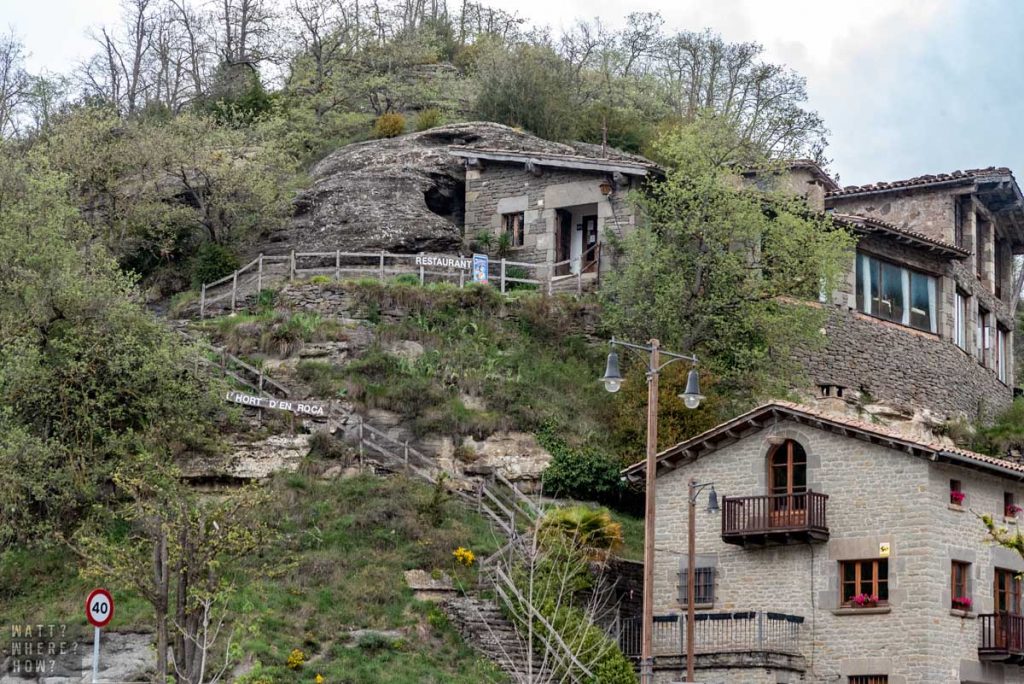
An idyllic rural appeal
As we make our way up the steep meandering road into the town the rain comes down. Gently at first. It gives us time to amble up the hill past a friendly donkey (the symbol of the region). A rustic farmhouse with a haystack thirstily soaks up the droplets as chickens seek shelter under a tin roof. Looking back towards the car park below, the river is already swelling. Flash flooding is common, propelled by a combination of heavy rainfall and melting snow from the nearby Pyrenees that has already ensured the fertile farmlands are thoroughly waterlogged. The heightened position of the town means that it only affects the local playground and not any of the old stone houses.
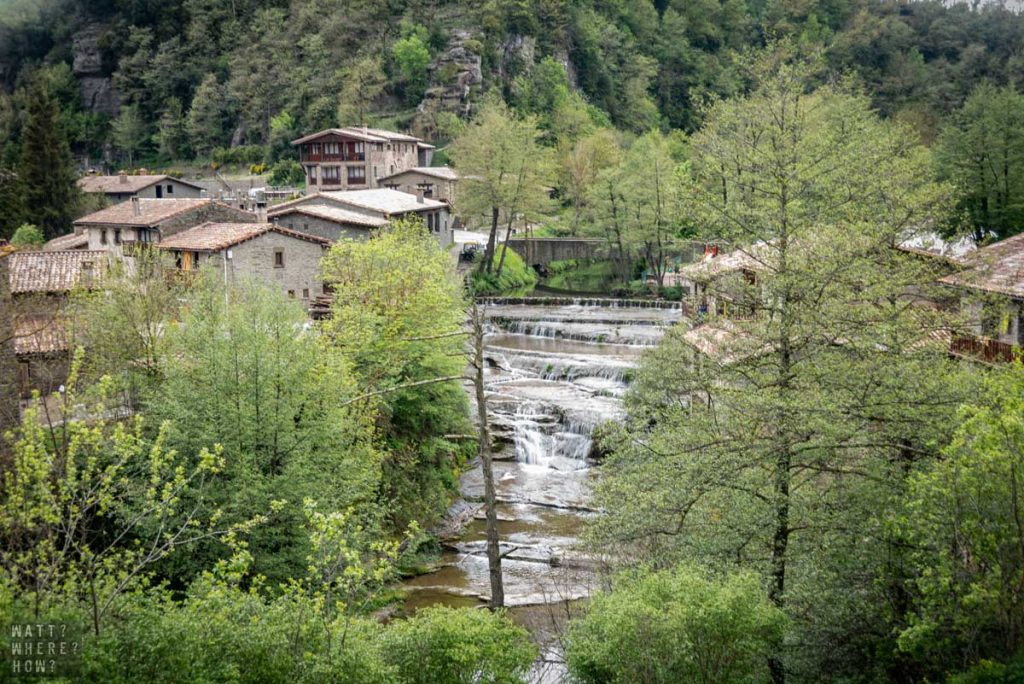
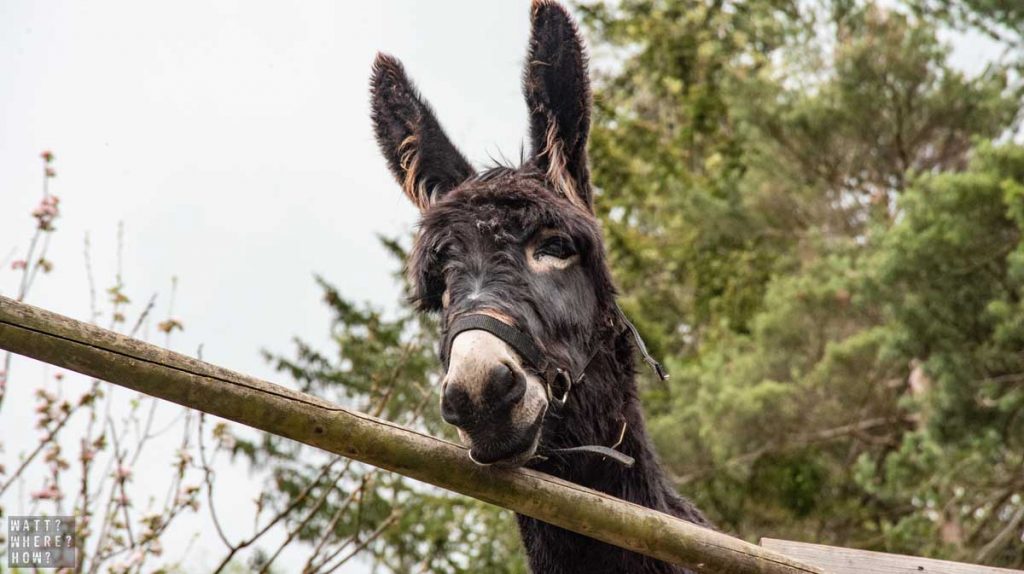
A gem of 16th Century architecture
Rupit is a beautiful specimen of stone architecture, with most houses dating back to the 16th and 17th centuries. Early builders have proudly marked the year of construction with their spartan chisels, usually with a cross, a blessing for the home. The town only consists of a few narrow streets, not wide enough for a truck to pass. As we get deeper down the main street, Carrer Barbacana, they retain this tight width.
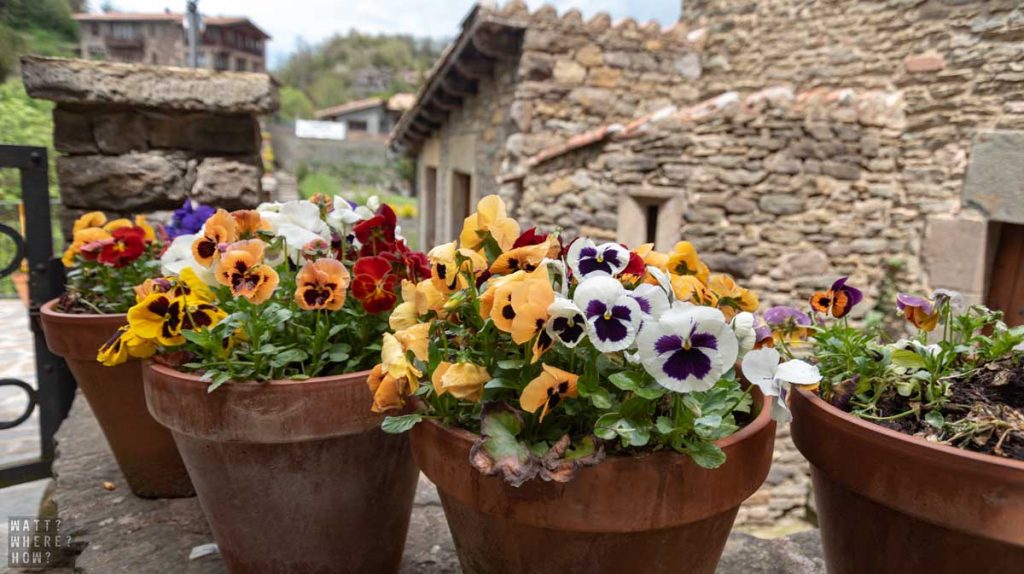
To the right, a narrow alley leads down to a suspension bridge, the Puenta Colgante de Rupit that moves slightly in the breeze. Today it’s closed, as a storm is about to break. A darkened church, Iglesia de Sant Miquel dates back to before the village reached its peak in the 1700s and is designed in a baroque style. It was built between 1633 and 1869. Sant Miguel is still the current parish church but is kept preserved behind a wall of glass except for on days with services. Instead, to see it illuminated, you have to put a Euro into a coin machine that lights the room for a minute, before clicking off and plunging the church into darkness.
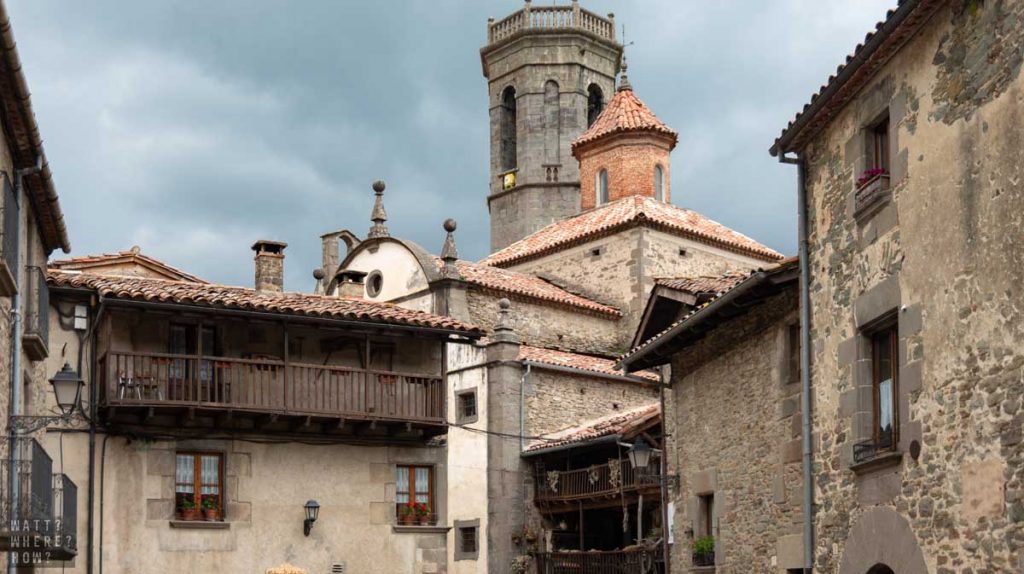
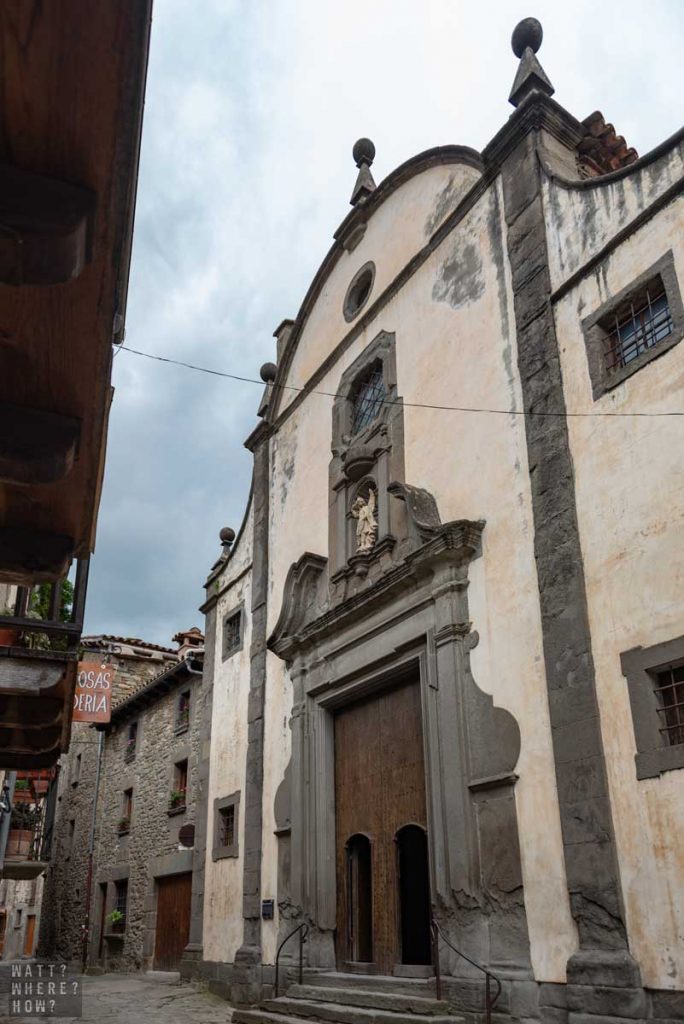
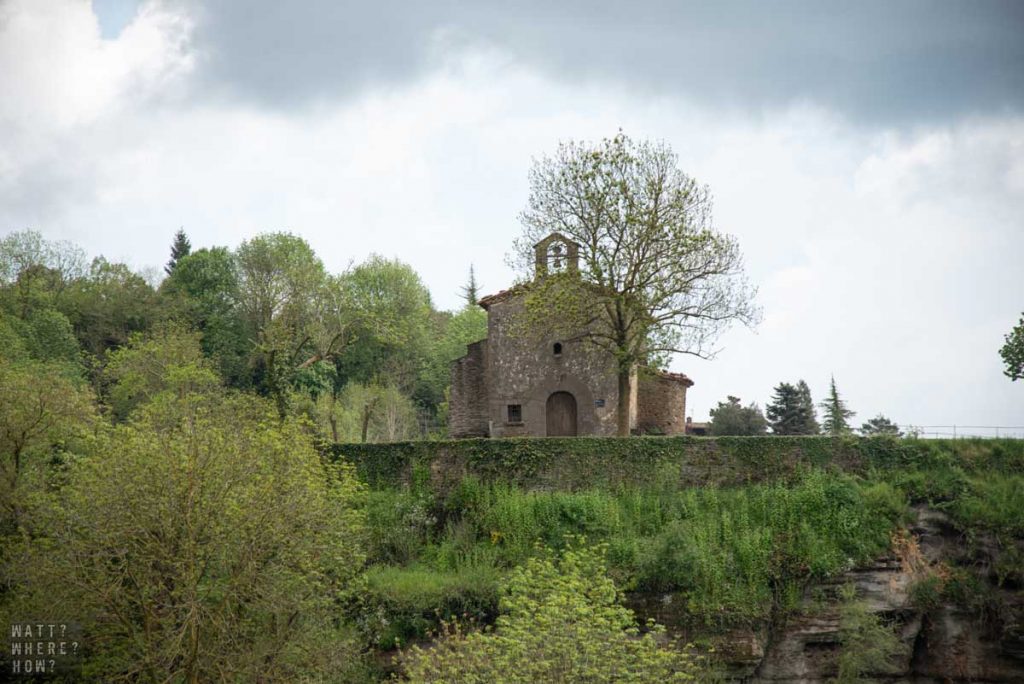
A gathering storm
On the distant hill is a quaint church, the Santa Magdalena Chapel, which is apparently only about a twenty-minute walk. With the heavens threatening to open, we backtrack to Carrer del Fossar, a steep, stepped street leads up a narrow incline. The old sedimentary stone is roughly hewn, and it’s definitely restricted to foot traffic with reliable walking shows. Again, the whole place is eerily quiet and the only souvenir store, the Ca l’Ample de Rupit is sadly closed. In its window are humorous “pooping” figures (including pop culture characters and world leaders) that are traditionally added to the nativity scene to bring good luck.
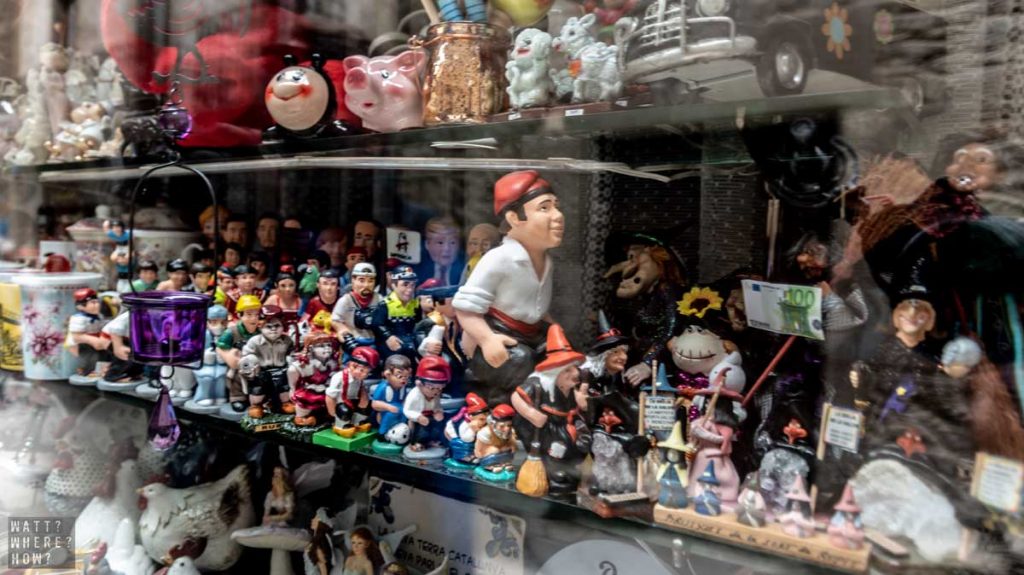
And authentic local flavors
Stopping for a traditional homemade meal times in with the skies opening and a torrential downfall hitting the town. From the relative comfort of the dining room, we dig into a selection of Spanish delicacies like a lamb shoulder (strangely served with fries) and veal and mushrooms. They offer a Prix fix menu or a la carte. A definite curio is a glass covered section of the floor that lets you gaze down into a musty wine cellar that doesn’t look like it has been opened in a hundred years.
By the time we get the check, the storm has drifted on, giving us a clear, but slippery run back down the hill. The river is now flooding and surging with rapids that were not there two hours earlier. It adds to the dramatic beauty of this Catalonian township, protected by one thousand years of stone that shows no sign of going anywhere in the next thousand.
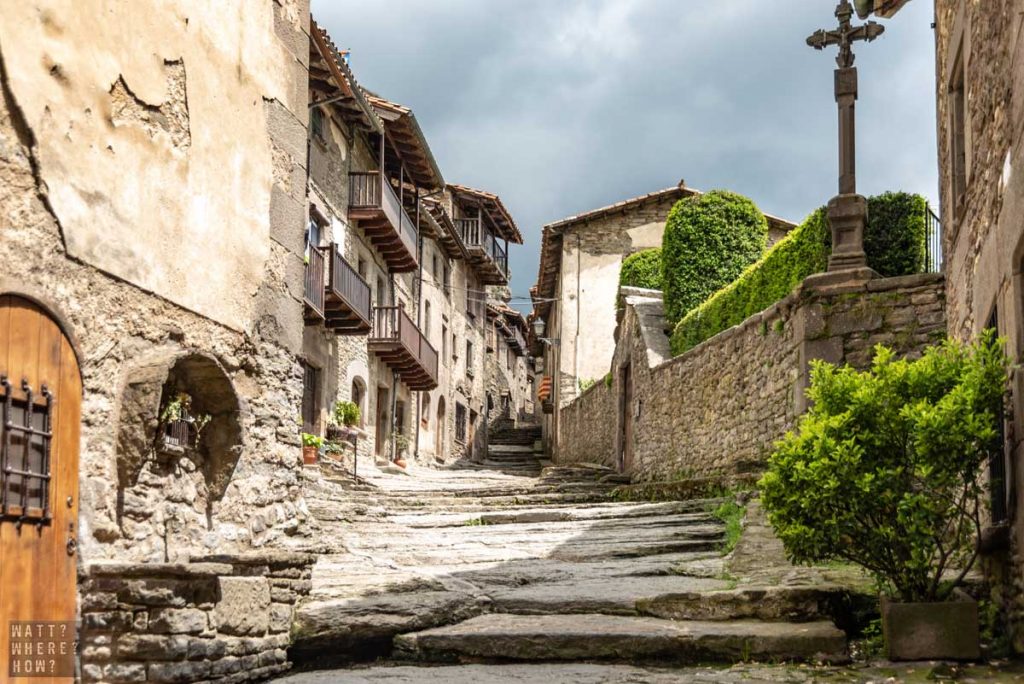
Like it? Pin or share!
WHAT?
Rupit is a Catalan hilltop town set in the local stone.
WHERE?
98km north-east of Barcelona.
HOW?
There is no set public transport but Rupit is included in some day trips offered by Viator.
Follow & Connect with us

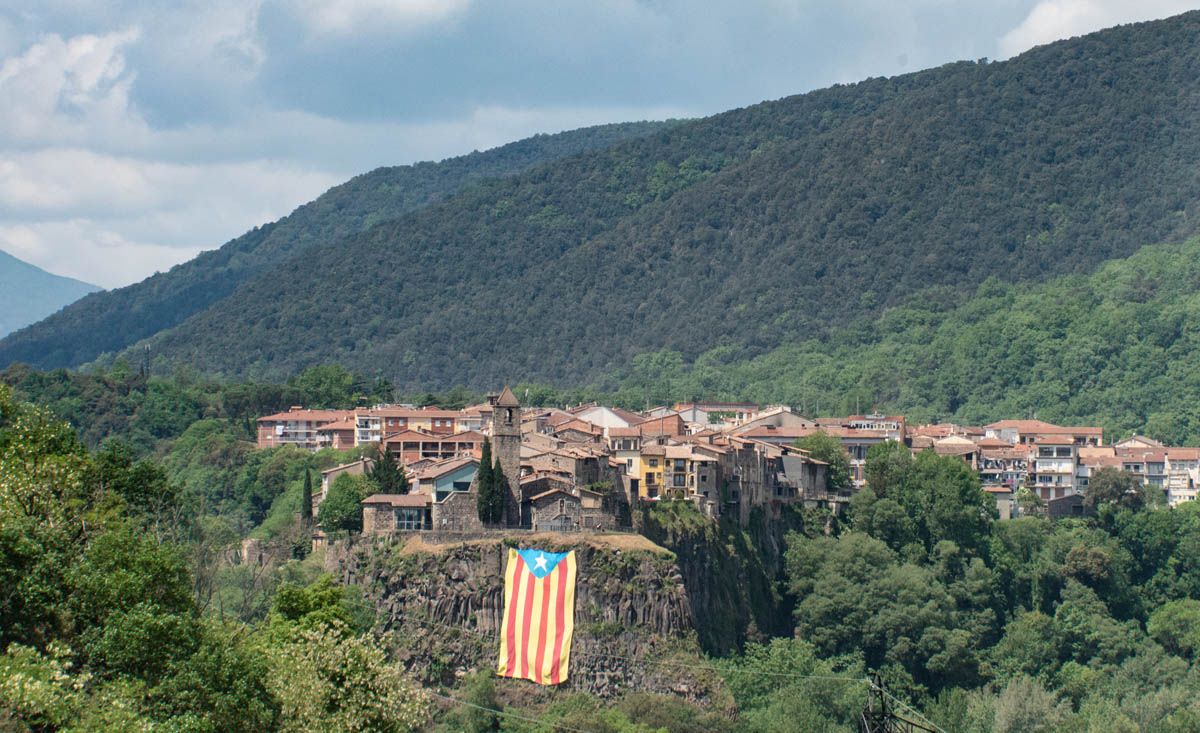
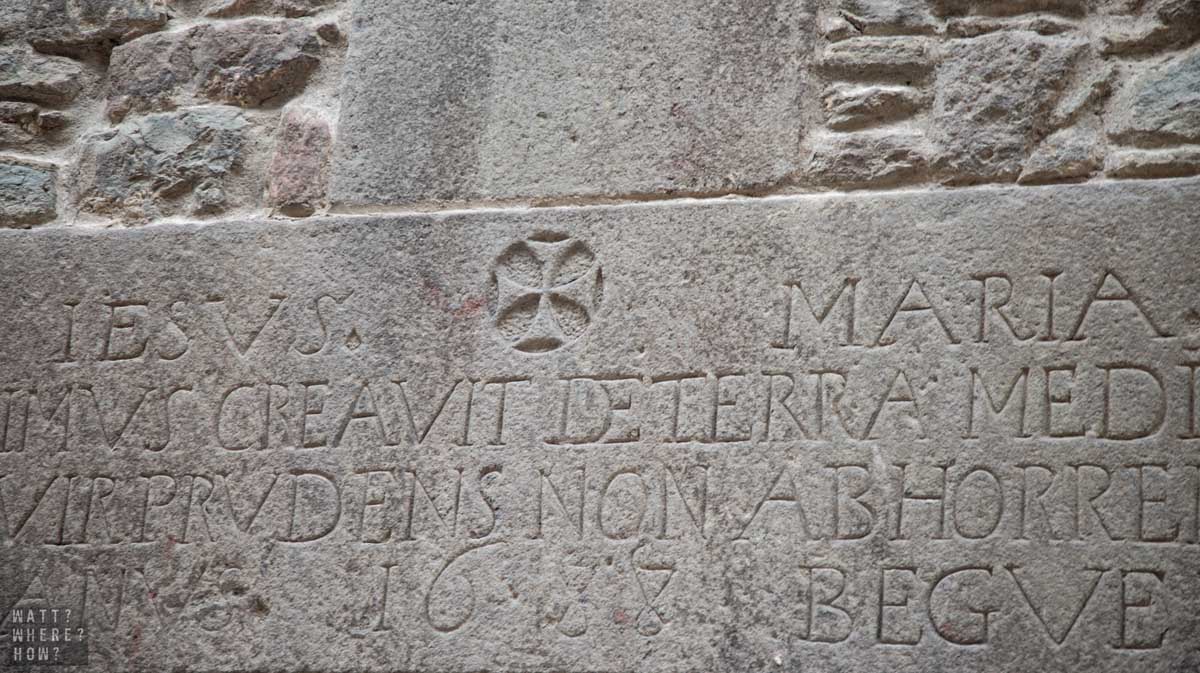
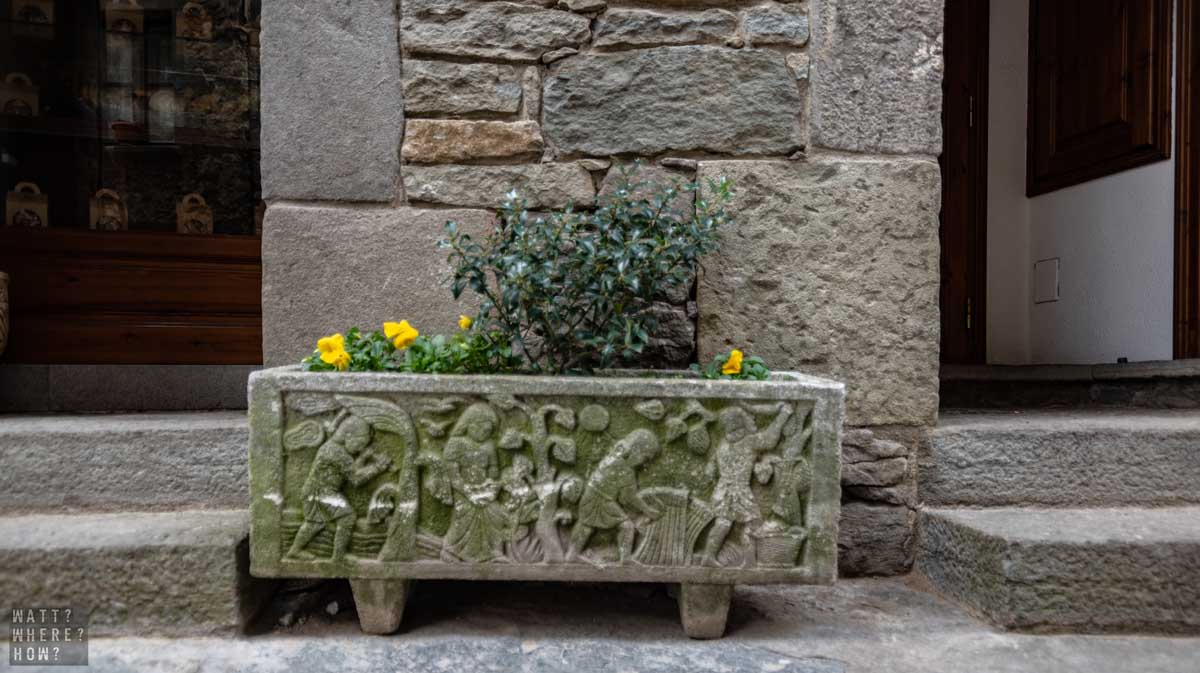
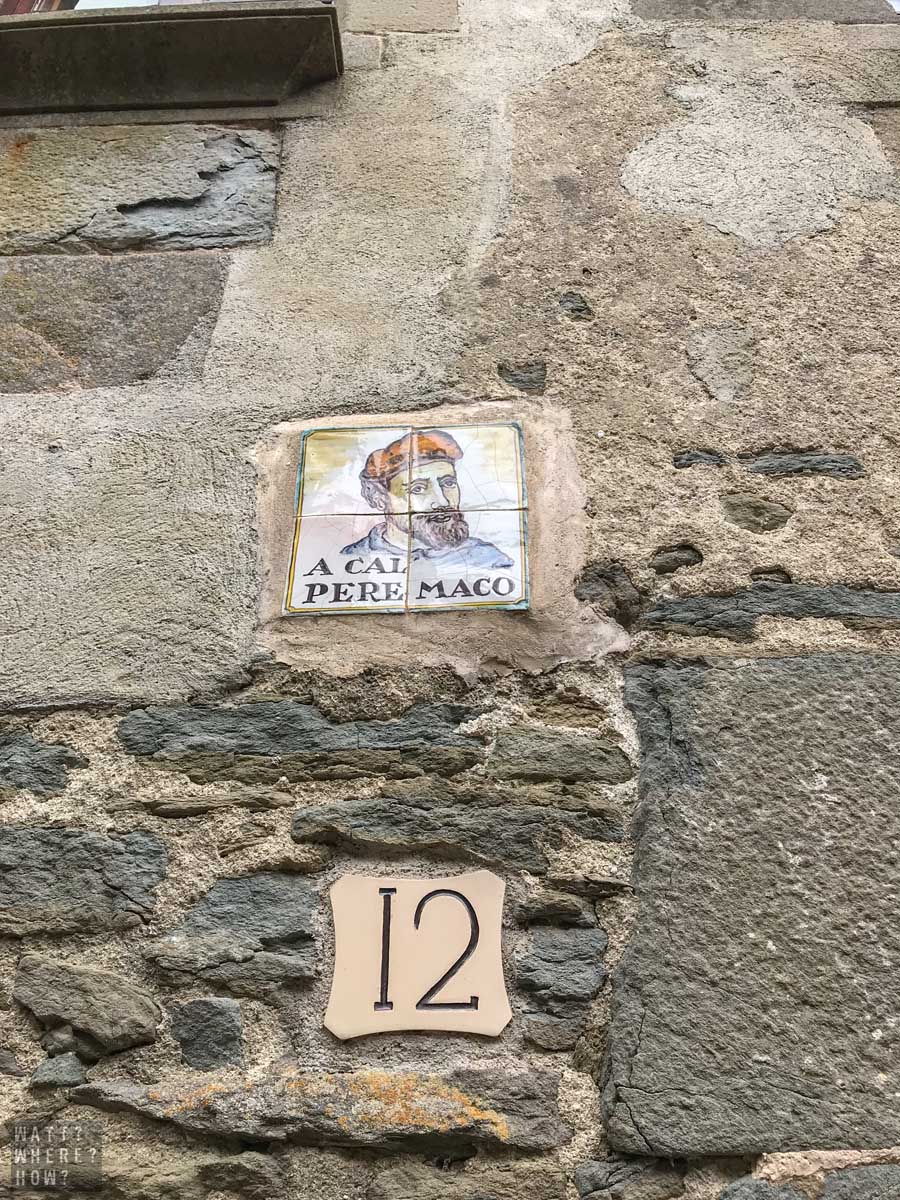
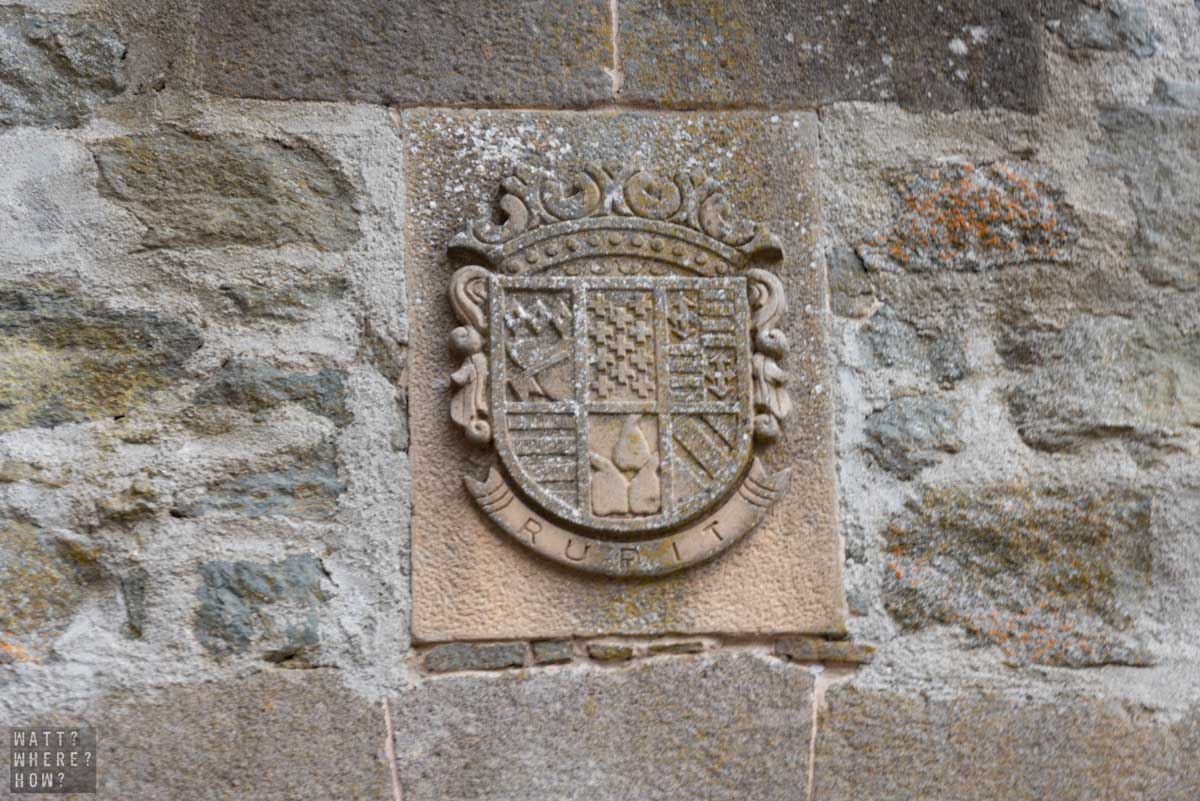
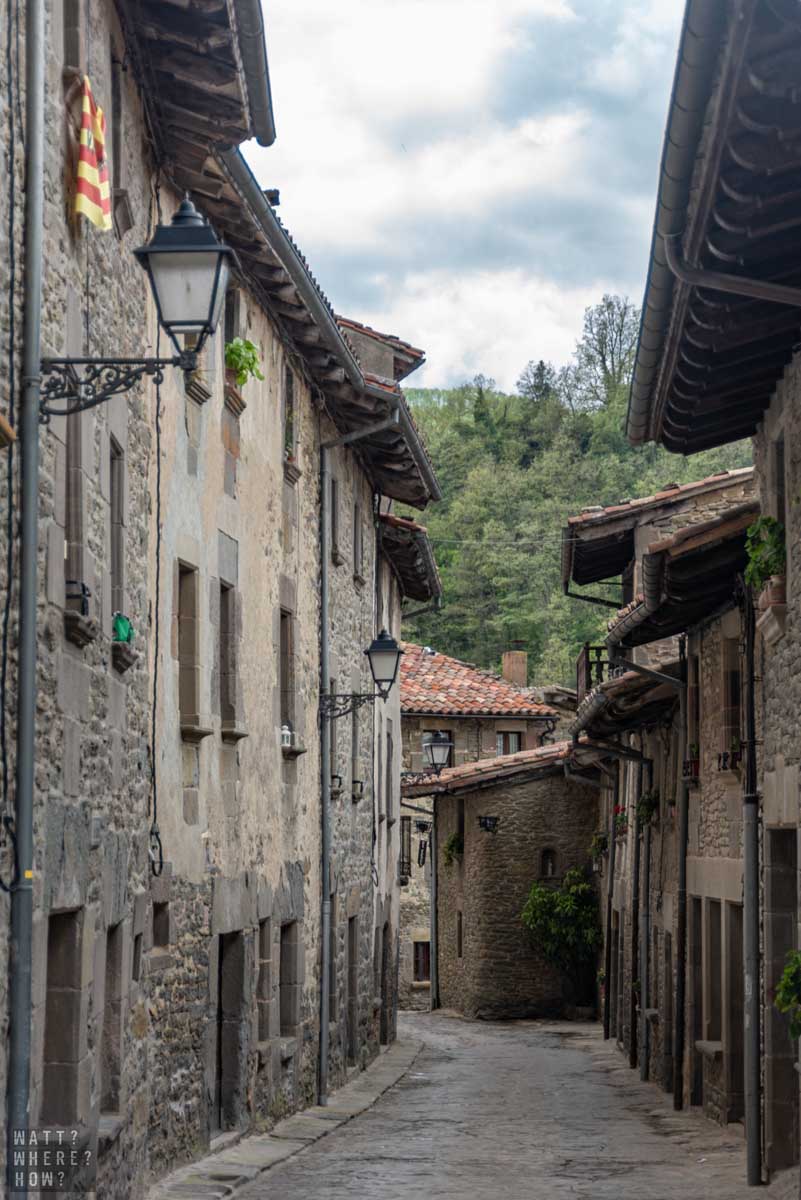
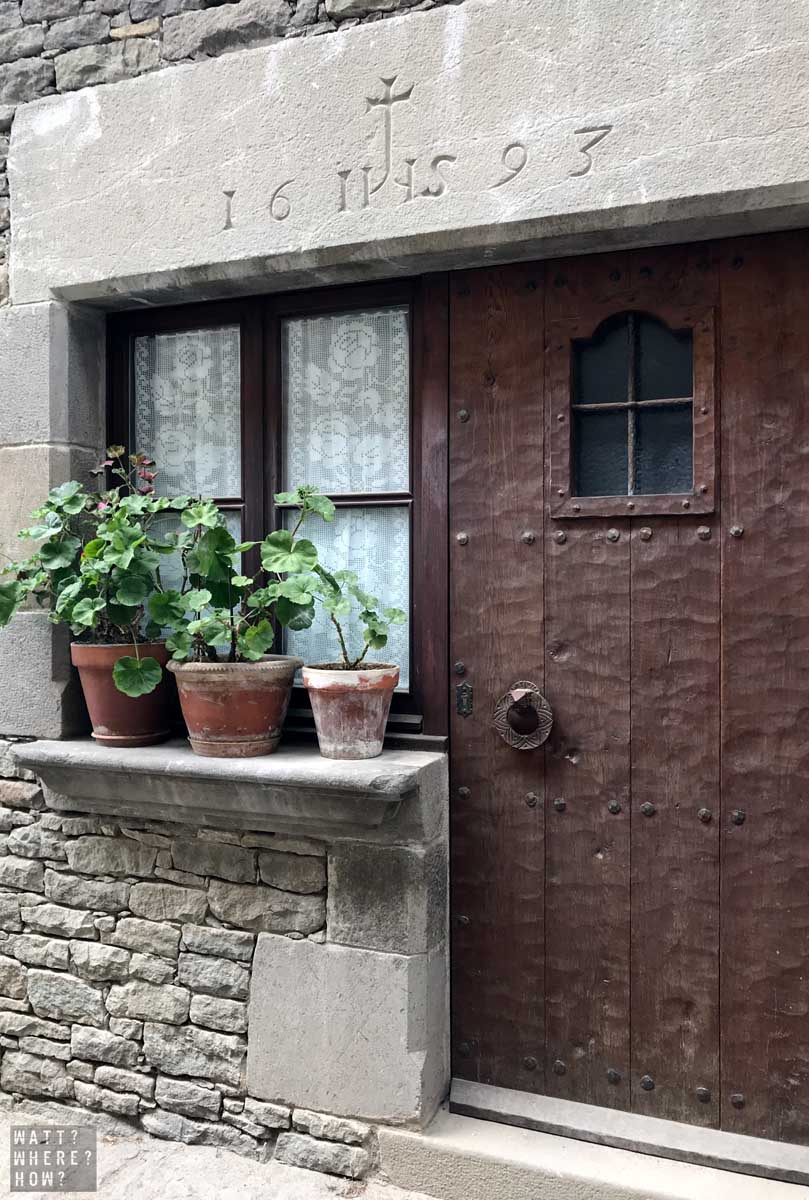
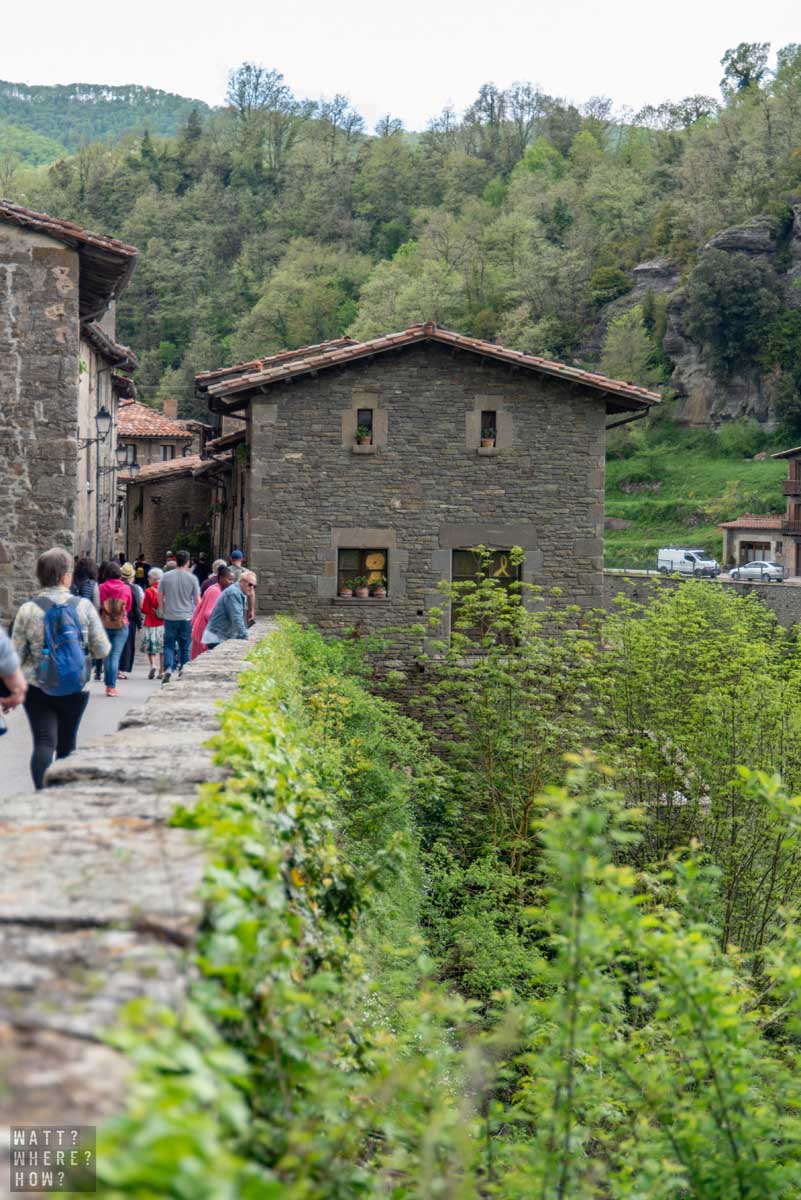
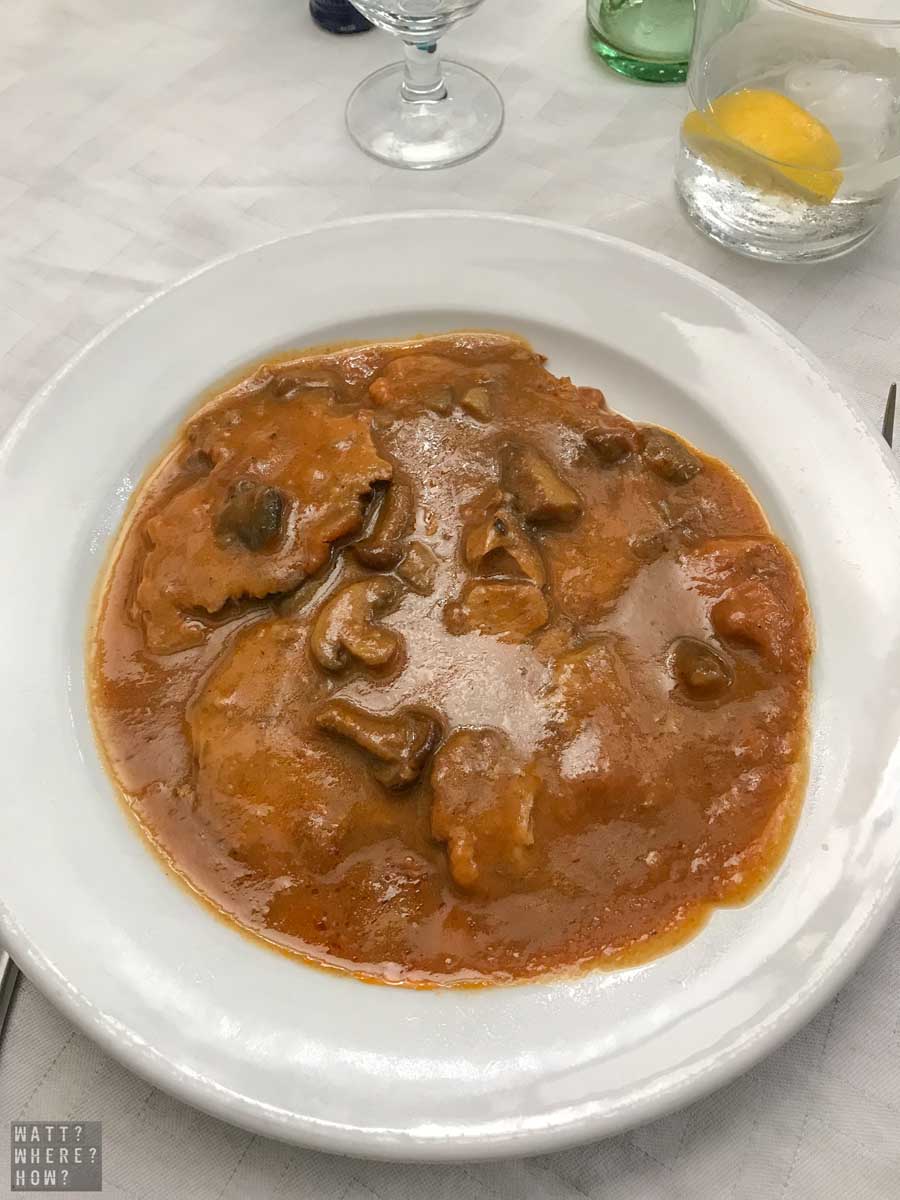
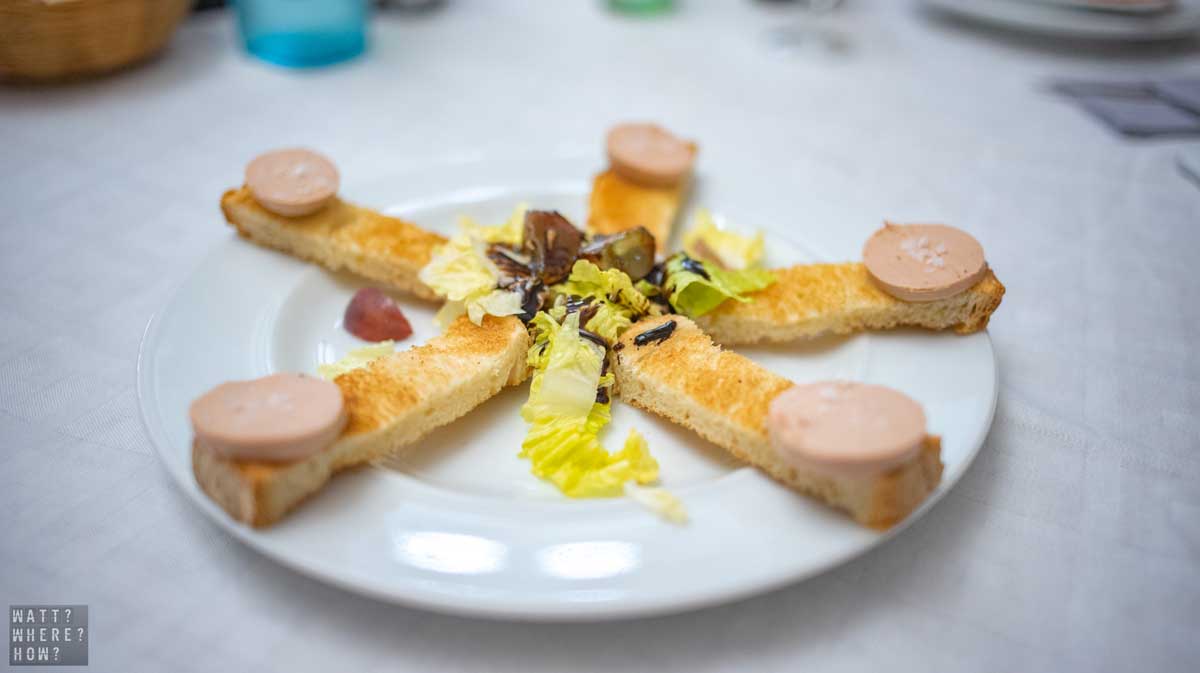
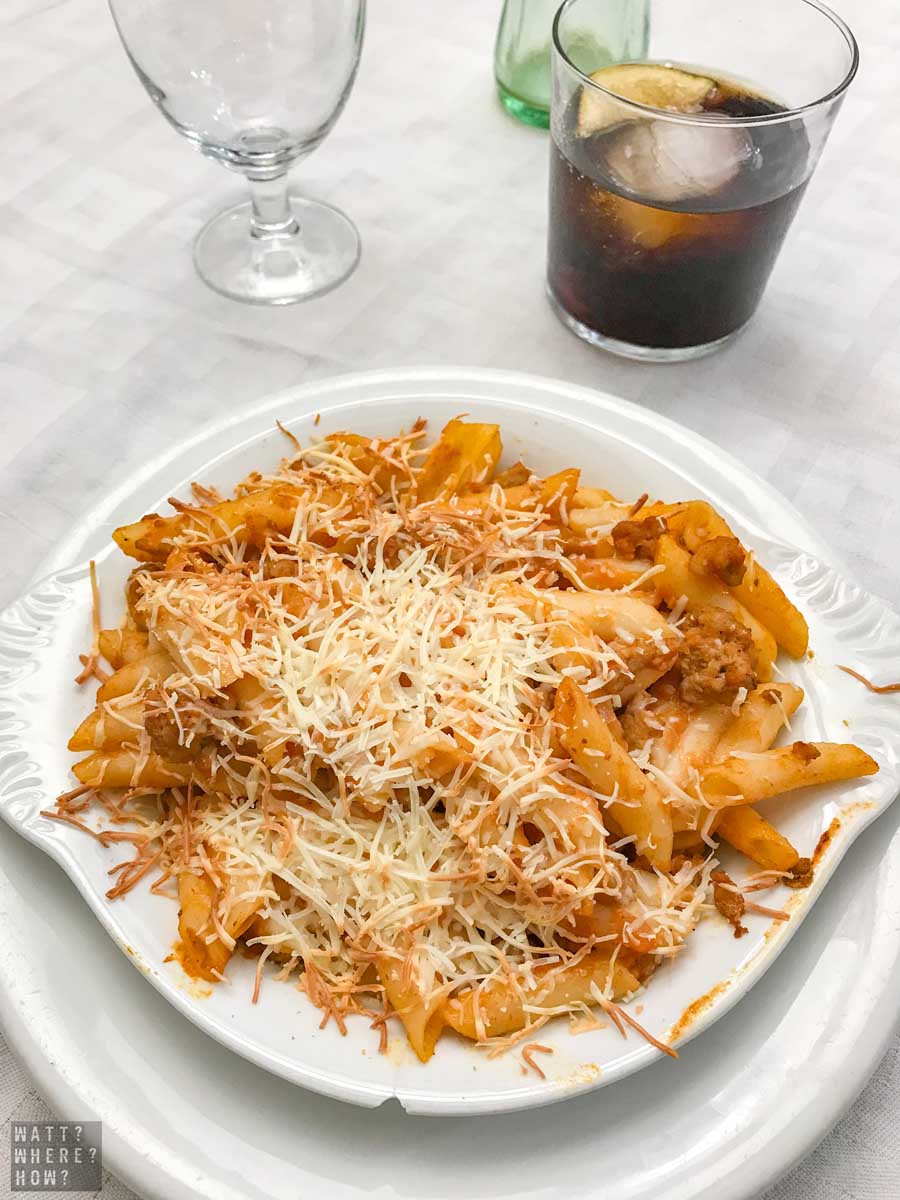
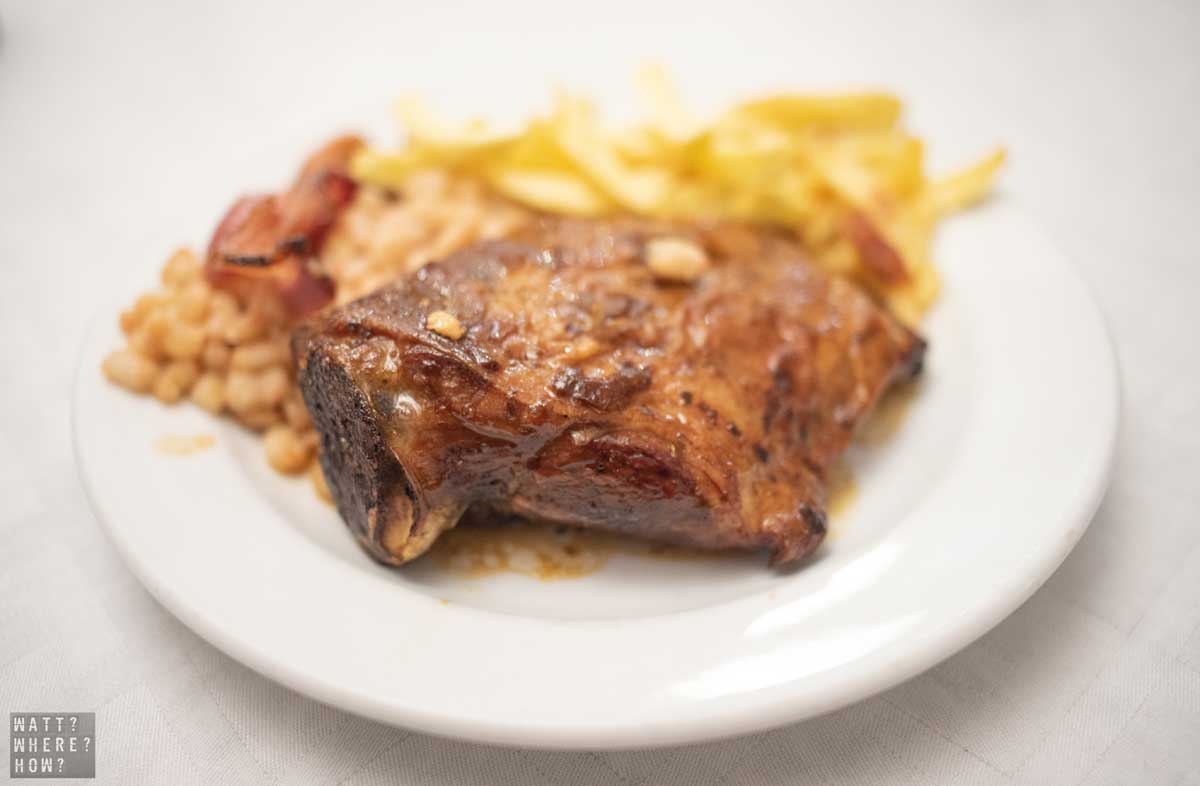
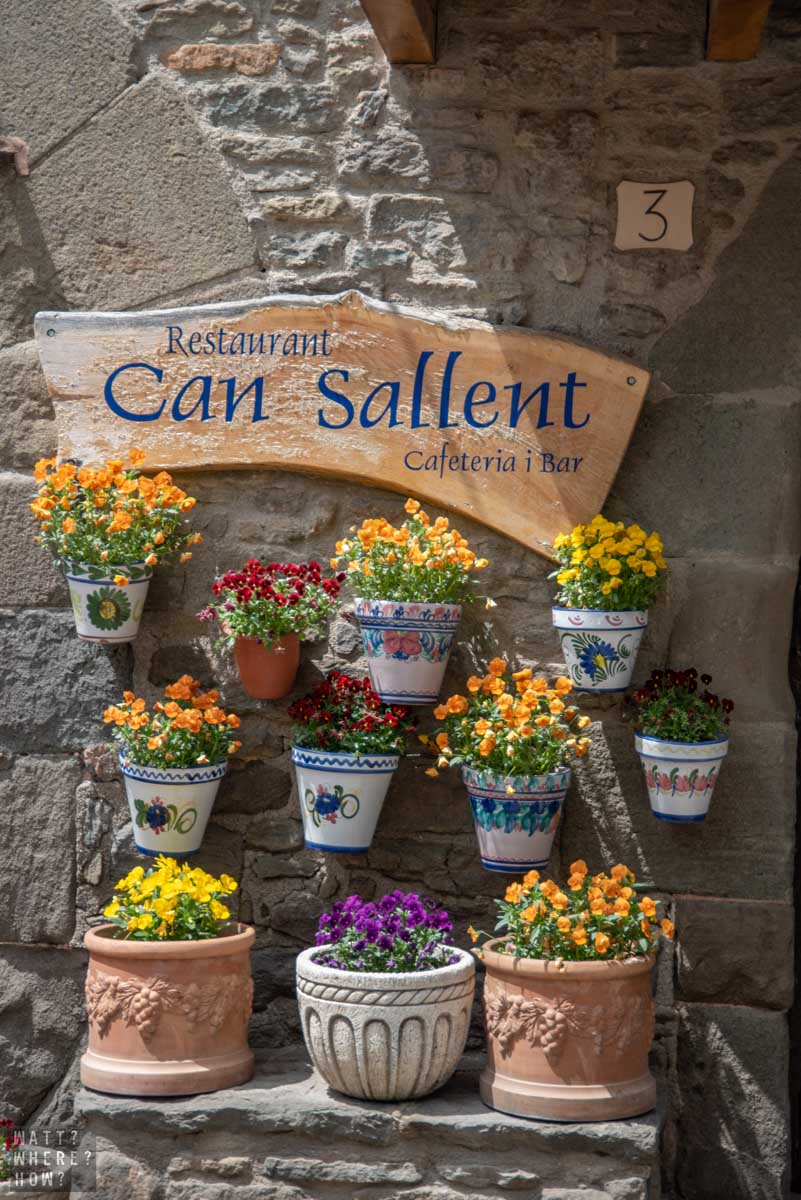

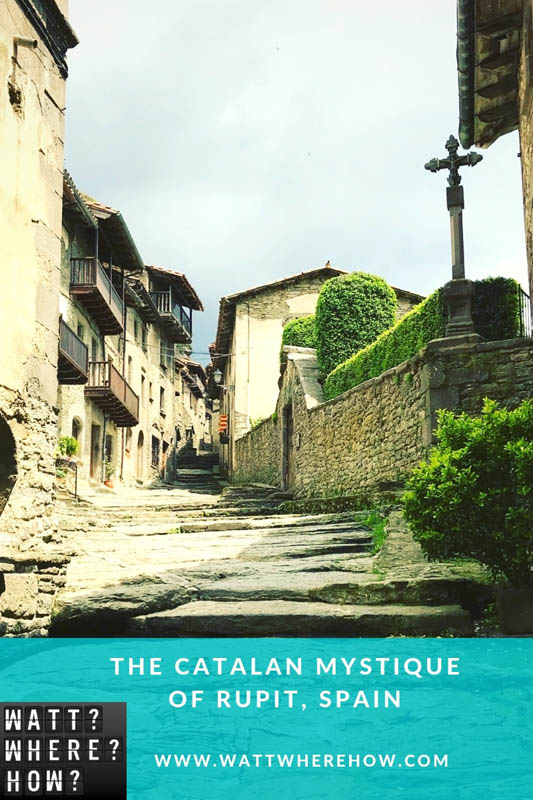
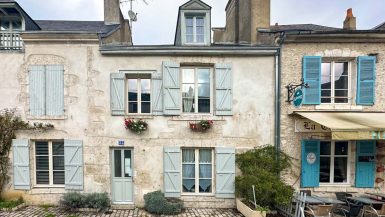

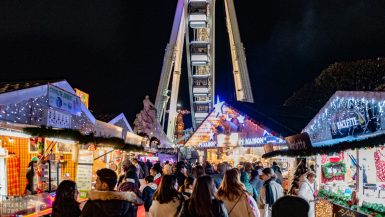
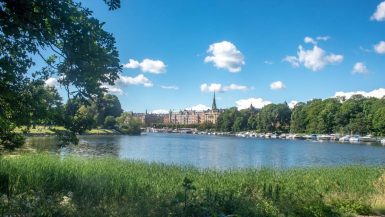
What a quaint town! It’s always nice to read about places other than Barcelona in Catalunya. It really looks like a blast from the past, and I totally agree about those steps, they’re very cute!
We took a tour to three equally beautiful medieval towns. They were so fascinating, with ancient churches, marketplaces, and the architecture was cute!
What a cool place! I absolutely love this region! I feel like I missed out as we drove past this last summer! We will have to revisit now! I love these sorts of villages!
Thanks Kevin – loving your site too!
What a beautiful little town. Fits perfect with the chat on twitter today. These places have so much character, even without the souvenir shop they are perfect.
Totally agree. It would be amazing to live there for a while to experience the countryside and change of pace.